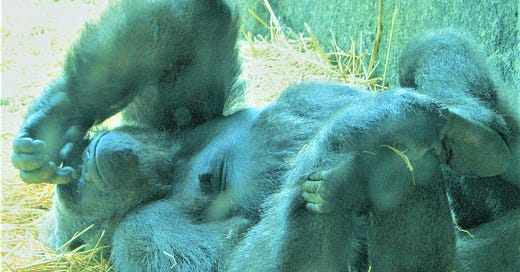In his autobiography entitled Something of Myself, Rudyard Kipling talked about his personal “daemon,” or demon. The author of The Jungle Book credited the aggressive guiding spirit with producing what Kipling could not create by himself.
Here’s the author: “My daemon came to me early when I sat bewildered among other notions, and said, ‘Take this and no other.’ I obeyed and was rewarded.” Continued Kipling: “After that, I learned to lean upon him and to recognize the sign of his approach. If I ever held back anything of myself, Ananias fashion, I paid for it by missing what I then knew the tale lacked.”
This is an ancient notion—that stories don’t originate in an author’s heart and mind. Rather, a writer is said to channel a disembodied spirit that produces the resulting tales. Some modern practitioners still pay lip service to the idea. Stephen King several years ago observed, “There is indeed a half-wild beast that lives in the thickets of each writer’s imagination.” The beast might be three-quarters wild in the case of King, the horror and science-fiction stylist.
What should we make of this? There’s no question that authors log out from reality when they are in the throes of creation. They absent themselves from their immediate surroundings and visit unseen worlds, which they then describe for readers. Are they captured by an alien presence, later regurgitating what they’re told? That’s all BD, of course. Balderdash. A flight of fancy. One might as well believe the gorilla in the accompanying photo is composing a poem. Nonsense.
Despite efforts of scientists of one kind or another to fathom the workings of the brain, it remains unfathomable. Its synapses and pons and chemical signaling remain wonderfully mysterious. To the extent that brain-probers have figured out how the mind works, that it works at all still boggles… well, the mind.
Creativity can’t be completely understood. There’s always an element of, “Where did that come from?” Scientists say the cerebrum is where the brain controls judgment, thinking and reasoning. Psychologists suggest imagination fuses these processes to create music, literature, and artwork. OK, but the fusion isn’t spontaneous—the catalyst involved is a person’s willful desire and ability to create. Art is original vision skillfully executed.
Successful artists are not the only creative souls, of course. The mother who senses a child’s innermost fear and pulls from the air the perfect images to alleviate it is a mistress of her realm. The businessperson who looks across the scape of a marketplace and spots an overlooked vein ripe for mining is an entrepreneurial genius. There’s no “daemon” involved, only inspiration and gumption.
The next time you hear someone credit a furtive inner beast with writing a rollicking new novel or coming up with a market-changing widget, smile at the claim and know it’s just more BD. Mankind is a wunderkind, a daemon-free creature of astonishing capacity, a King of the Jungle… as I suspect Kipling knew in his heart of hearts.




